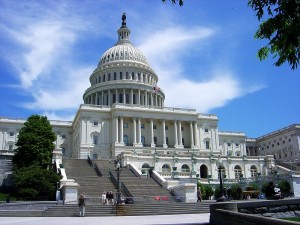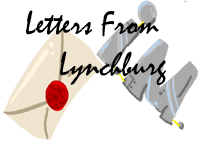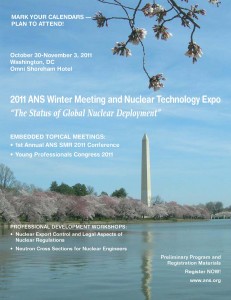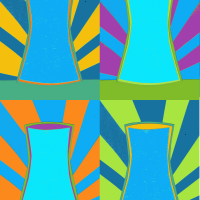Hall Talk - Nov 1
Our intrepid reporter files another update from the ANS Winter Meeting.

Our intrepid reporter files another update from the ANS Winter Meeting.
Our intrepid reporter files another update from the ANS Winter Meeting.
 For a while in the early 1990s, my work at Nuclear News magazine included coverage of Washington, D.C. Eight or ten times a year, I'd spend two or three days in our nation's capital, attending congressional hearings, interviewing bigwigs, pestering agencies to give me copies of arcane documents, and frantically taking notes in public meetings at the headquarters of the Nuclear Regulatory Commission.
For a while in the early 1990s, my work at Nuclear News magazine included coverage of Washington, D.C. Eight or ten times a year, I'd spend two or three days in our nation's capital, attending congressional hearings, interviewing bigwigs, pestering agencies to give me copies of arcane documents, and frantically taking notes in public meetings at the headquarters of the Nuclear Regulatory Commission.
The American Nuclear Society's Public Education Program will be sponsoring a one-day teacher workshop on Saturday, October 29, in Washington, DC. The workshop-Detecting Radiation in Our Radioactive World-is intended for science educators (including biology, chemistry, earth science, physics, physical science, life science, environmental, and general science teachers) at the high school and middle school levels. The workshop will be held prior to the ANS Winter Conference, October 30-November 3, 2011.
 The 2011 Young Professionals Congress (YPC 2011) is coming, and the time to register is now! YPC 2011 is an embedded topical of the American Nuclear Society Winter Meeting in Washington, DC, October 30-November 3, 2011. YPC2011 is the fourth YPC, and the second to be held as an embedded topical in parallel with the ANS Winter Meeting.
The 2011 Young Professionals Congress (YPC 2011) is coming, and the time to register is now! YPC 2011 is an embedded topical of the American Nuclear Society Winter Meeting in Washington, DC, October 30-November 3, 2011. YPC2011 is the fourth YPC, and the second to be held as an embedded topical in parallel with the ANS Winter Meeting.
Nothing in life is to be feared. It is only to be understood. ~Marie Curie
 On August 25, 2011, I had the privilege of attending the ribbon cutting ceremony for the Center for Advanced Engineering Research (CAER) located in Bedford County, Va., near Lynchburg. The crowd at the event included representatives of local, state, and federal governments, as well as a number of area business people, academics, and boosters.
On August 25, 2011, I had the privilege of attending the ribbon cutting ceremony for the Center for Advanced Engineering Research (CAER) located in Bedford County, Va., near Lynchburg. The crowd at the event included representatives of local, state, and federal governments, as well as a number of area business people, academics, and boosters.
 It's time to make plans to attend the American Nuclear Society's 2011 Winter Meeting and Nuclear Technology Expo, this year held in Washington, DC, on October 30-November 3 at the Omni Shoreham Hotel.
It's time to make plans to attend the American Nuclear Society's 2011 Winter Meeting and Nuclear Technology Expo, this year held in Washington, DC, on October 30-November 3 at the Omni Shoreham Hotel.
A recent article called "Earthquake, Tsunami, and Nuclear Power in Japan," written by Karen Street has gotten a lot of attention over the past week. It is a well written and comprehensive look at how humanitarian issues interface with energy issues. Shortly after the article was published in Friends Journal, Street was contacted by a personal friend (and long-time nuclear opponent) with the question, "How do I get involved?"
Vermont Yankee's opponents continue their campaign
The American Nuclear Society's Board of Directors on June 30 during the ANS Annual Conference in Hollywood, Fla., approved the creation of three new student sections:
In high school one day I learned that nuclear energy is dangerous to people and the environment. After school that day I confronted my dad, a nuclear engineer, and luckily he was attentive enough to know that I am a visual learner and proceeded to "show" me the ways that nuclear is safe. The whole story can be found here, if you haven't already heard it.
Two British environmental writers who were bitterly opposed to nuclear energy development just a few years ago decided to do some homework. Their questioning attitude and fact seeking minds have led them to the inescapable conclusion that most of the arguments against nuclear energy repeatedly offered by the opposition have been pure fabrications. George Monbiot and Mark Lynas both bring assets to the battle for hearts and minds in the energy source debate that are hard to match - they are recent converts to a pro-nuclear technology position with deep credentials in the environmental community. In addition, they are professional communicators with stories to tell.
In new media and old, time must be devoted to finding and conveying accurate information, no matter how short the news cycle.
In the weeks and months following the events at the Fukushima plant in Japan, the American Nuclear Society's Social Media listserv has become a headquarters for sharing information, ideas, and strategies about how to combat misinformation about nuclear energy. This active forum is facilitated by Dan Yurman, who through this effort has opened a new door for collaboration between communicators from all corners of the nuclear community. Many on this list have voiced concerns that the industry response to Fukushima has not yet managed to transition from defensive to offensive, in terms of public outreach.
About 35 percent of current nuclear workers will retire in next five years. Where will the next generation come from?
 As an artist I have been lucky to find a place in the nuclear community, but I haven't forgotten what it feels like to be confused about energy (there was a time when I thought that biofuels and solar panels were a viable solution). I want to describe a situation that many young Americans are facing right now, in order to offer perspective on what energy issues look like from the outside. Do your best to put yourself in someone else's shoes for a moment:
As an artist I have been lucky to find a place in the nuclear community, but I haven't forgotten what it feels like to be confused about energy (there was a time when I thought that biofuels and solar panels were a viable solution). I want to describe a situation that many young Americans are facing right now, in order to offer perspective on what energy issues look like from the outside. Do your best to put yourself in someone else's shoes for a moment: